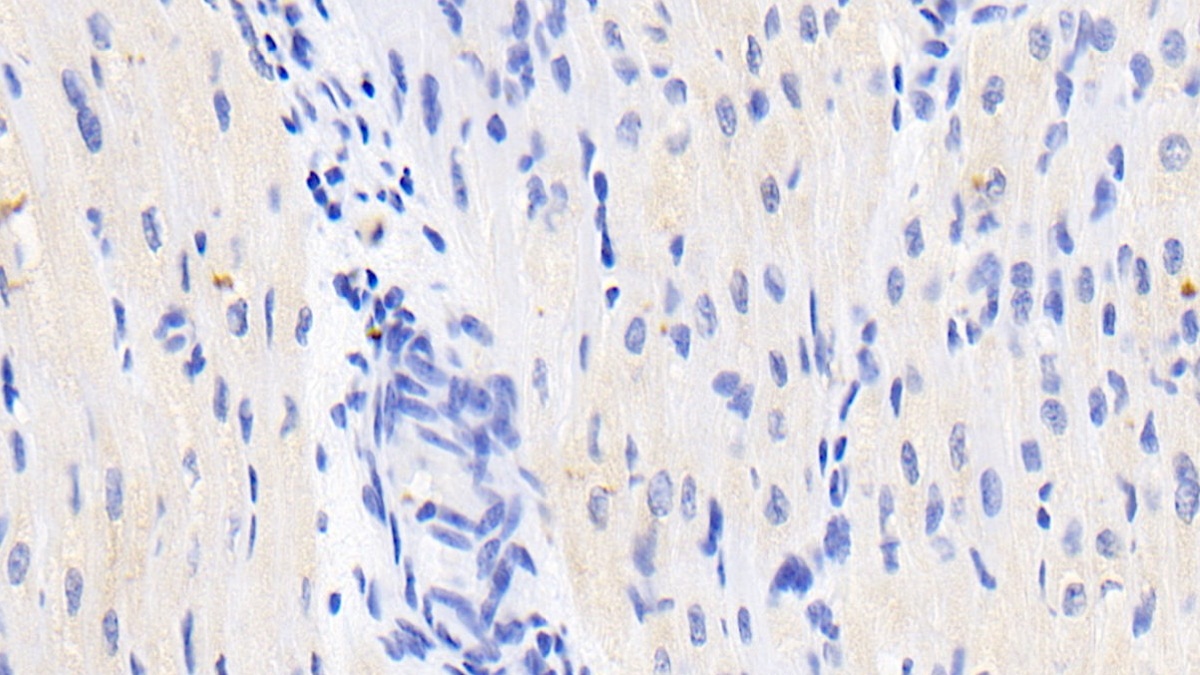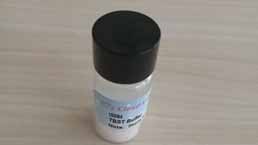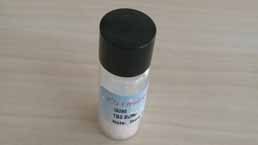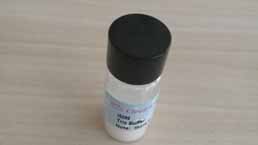Monoclonal Antibody to N-Terminal Pro-Brain Natriuretic Peptide (NT-ProBNP) 

NT-Pro-BNP; ; N-BNP
Overview
Properties
- Product No.MAA485Hu25
- Organism SpeciesHomo sapiens (Human) Same name, Different species.
- ApplicationsIHC
If the antibody is used in flow cytometry, please check FCM antibodies.
Research use only - DownloadInstruction Manual
- CategoryEndocrinologyCardiovascular biology
- SourceMonoclonal antibody preparation, Host Mouse
- Ig Isotype IgG1 Kappa, Clone Number E2
- PurificationProtein A + Protein G affinity chromatography
- LabelNone
- Immunogen RPA485Hu01-Recombinant N-Terminal Pro-Brain Natriuretic Peptide (NT-ProBNP)
- Buffer Formulation0.01M PBS, pH7.4, containing 0.05% Proclin-300, 50% glycerol.
- TraitsLiquid, Concentration 1mg/mL
Sign into your account
Share a new citation as an author
Upload your experimental result
Review

Contact us
Please fill in the blank.
Specifity
The antibody is a mouse monoclonal antibody raised against NT-ProBNP. It has been selected for its ability to recognize NT-ProBNP in immunohistochemical staining and western blotting.
Usage
Western blotting: 0.5-2µg/mL;
Immunohistochemistry: 5-20µg/mL;
Immunocytochemistry: 5-20µg/mL;
Optimal working dilutions must be determined by end user.
Storage
Store at 4°C for frequent use. Stored at -20°C in a manual defrost freezer for two year without detectable loss of activity. Avoid repeated freeze-thaw cycles.
Stability
The thermal stability is described by the loss rate. The loss rate was determined by accelerated thermal degradation test, that is, incubate the protein at 37°C for 48h, and no obvious degradation and precipitation were observed. The loss rate is less than 5% within the expiration date under appropriate storage condition.
Giveaways
Increment services
Citations
- The role of serum n-terminal pro-brain natriuretic peptide in transient tachypnea of the newbornEuropeanreview: Source
- Vascular Adhesion Protein-1, a Novel Molecule, in Kidney and Heart Allograft RecipientsPubmed: 23769096
- Paradoxical low-flow, low-gradient aortic stenosis despite preserved left ventricular ejection fraction: new insights from weights of operatively excised aortic valvesPubmed: 24755006
- A Randomized Controlled Trial to Study the Effect of Yoga Therapy on Cardiac Function and N Terminal Pro BNP in Heart FailureNCBI: PMC3981569
- Diabetes enhances the intrahepatic vascular response to endothelin-1 in cirrhotic rats: association with the ETA receptor and pERK up-regulation.Pubmed:24636620
- Growth-differentiation factor 15 and osteoprotegerin in acute myocardial infarction complicated by cardiogenic shock: a biomarker substudy of the IABP-SHOCK II-trial.Pubmed:24903195
- Biomarkers and Echocardiographic Predictors of Myocardial Dysfunction in Patients with HypertensionPubMed: 25747153
- The Multi-Biomarker Approach for Heart Failure in Patients with HypertensionPubMed: 25984599
- Effect of Treatment on Body Fluid in Patients with Unilateral Aldosterone Producing Adenoma: Adrenalectomy versus SpironolactonePubMed: 26477337
- Diabetes enhances the intrahepatic vascular response to endothelin‐1 in cirrhotic rats: association with the ETA receptor and pERK up‐regulationPubMed: 24636620
- Qiliqiangxin improves cardiac function and attenuates cardiac remodeling in rats with experimental myocardial infarctionPubMed: 26261541
- NT-proBNP in Children With Left to Right Shunt and Dilated Cardiomyopathyserve:4485
- Human myoblast transplantation in mice infarcted heart alters the expression profile of cardiac genes associated with left ventricle remodelingPubmed:26457413
- Cardiovascular changes in patients with non-severe Plasmodium vivax malariaarticle:S2352-9067(16)30010-0
- Soluble Glycoprotein 130 and Heat Shock Protein 27 as Novel Candidate Biomarkers of Chronic Heart Failure with Preserved Ejection FractionPubmed:27067668
- Differences in biochemical and genetic biomarkers in patients with heart failure of various etiologies.pubmed:27448535
- Expression of pericardial fluid T-cells and related inflammatory cytokines in patients with chronic heart failure.pubmed:28565777
- Effect of Cardiac Resynchronization Therapy on Myocardial Fibrosis and Relevant Cytokines in a Canine Model With Experimental Heart Failure.pubmed:28127817
- Study of Vitamin D Status in Patients with Dilated Cardiomyopathy at a Teaching Hospital in North India.pubmed:28465969
- 5-methoxytryptophan is a potential marker for post-myocardial infarction heart failure - apreliminary approach to clinical utility.pubmed:27526355
- Beneficial Effects of Ozone Therapy on Oxidative Stress, Cardiac Functions and Clinical Findings in Patients with Heart Failure Reduced Ejection Fractionpubmed:28097518
- Serial heart rhythm complexity changes in patients with anterior wall ST segment elevation myocardial infarction.pubmed:28252107
- The predictive capabilities of a novel cardiovascular magnetic resonance derived marker of cardiopulmonary reserve on established prognostic surrogate markers in patients with pulmonary vascular disease: results of a longitudinal pilot studypubmed:28065166
- AVALIAÇÃO ELETROCARDIOGRÁFICA AMBULATORIAL DE CÃES COM EHRLIQUIOSE MONOCÍTICA CRÔNICAhandle:11449
- Cardiac biomarkers in dogs with visceral leishmaniasisS0301-732X2016000300004
- Evaluation of N-Terminal Pro Brain Natriuretic Peptide as a biomarker for clinical severity of heart failure in pediatric populationAttach432
- Cardioprotection against Heart Failure by Shenfu Injection via TGF-β/Smads Signaling Pathwaypubmed:28698735
- QSKL protects against myocardial apoptosis on heart failure via PI3K/Akt-p53 signaling pathway.pubmed:29209026
- Reversal effects of low-dose imatinib compared with sunitinib on monocrotaline-induced pulmonary and right ventricular remodeling in ratspubmed:29100963
- Qiliqiangxin Enhances Cardiac Glucose Metabolism and Improves Diastolic Function in Spontaneously Hypertensive Ratspubmed:28706558
- Prediction of electro-anatomical substrate using APPLE score and biomarkersPubmed:29893827
- Role of NT-proANP and NT-proBNP in patients with atrial fibrillation: Association with atrial fibrillation progression phenotypesPubmed:29604419
- MicroRNAs in Peripheral Mononuclear Cells as Potential Biomarkers in Hypertensive Patients With Heart Failure With Preserved Ejection FractionPubmed:29506053
- Differential microRNA expression profiles and bioinformatics analysis between young and aging spontaneously hypertensive ratsPubmed:29328372
- Regulation of circulating chromogranin B levels in heart failurePubmed:29098879
- Effect of 6-min Walk Test on pro-BNP Levels in Patients with Pulmonary Arterial HypertensionPubmed:29564533
- Dynamic monitoring the level of NT-proBNP in assessing the value of cardiac function and prognosis in patients with systemic infectionijcem0072283.pdf
- Signature-oriented investigation of the efficacy of multicomponent drugs against heart failurePubmed: 30230922
- Qiliqiangxin ameliorates cardiac dysfunction in heart failure rats post myocardial infarction via activation of HIF/VEGF pathway
- Decreasing cardiac iron overload with Amlodipine and Spirulina in children with β-thalassemiaDoi: 10.1016/j.phoj.2018.10.001
- Acute Responses of Novel Cardiac Biomarkers to a 24-h Ultra-MarathonPubmed: 30625976
- Relationship between Natriuretic Peptide Levels with Heart and Kidney Parameters in Rats with Chronic Renal Failure.
- Biological markers for the effects of yoga as a complementary and alternative medicinePubmed: 30735481
- Trimetazidine Attenuates Exhaustive Exercise-Induced Myocardial Injury in Rats via Regulation of the Nrf2/NF-κB Signaling PathwayPubmed: 30890937
- Potential Effects of CXCL9 and CCL20 on Cardiac Fibrosis in Patients with Myocardial Infarction and Isoproterenol-Treated RatsPubmed: 31083544
- Evaluation of heart rate variability and behavior of electrocardiographic parameters in dogs affected by chronic Monocytic EhrlichiosisPubmed: 31125348
- Cardio-protective effect of the secretome of Sca-1+ and Sca-1-cells in heart failure–not equal, but equally important? Paracrine cell effects on heart failure
- The potential role of inflammation in cryptogenic stroke
- Arterial Stiffness and Indices of Left Ventricular Diastolic Dysfunction in Patients with Embolic Stroke of Undetermined EtiologyPubmed: 31612072
- Hormonal Response to Incremental and Continuous Exercise in Cyclists with Left Ventricle HypertrophyPubmed: 32148580
- Preclinical development of a miR-132 inhibitor for heart failure treatmentPubmed: 32005803
- Evaluating the Relationship of GDF-15 with Clinical Characteristics, Cardinal Features, and Survival in Multiple MyelomaPubmed: 33144847
- CDR132L improves systolic and diastolic function in a large animal model of chronic heart failurePubmed: 33089304
- Omega-3 polyunsaturated fatty acids alleviate hydrogen sulfide-induced blood-testis barrier disruption in the testes of adult micePubmed: 33068716
- Apela improves cardiac and renal function in mice with acute myocardial infarctionPubmed: 32686917
- Left Ventricular Diastolic Dysfunction as Predictor of Unfavorable Prognosis After ESUS33727824
- κ Opioid Receptor Agonist Inhibits Myocardial Injury in Heart Failure Rats through Activating Nrf2/HO-1 Pathway and Regulating Ca2+-SERCA2a34373768
- Hemodynamic Responses in Lower Limb Lymphedema Patients Undergoing Physical Therapy34356497
- Risk Stratification of Pulmonary Thromboembolism using Brain Natriuretic Peptide and Troponin I; a Brief ReportPubmed:35072097
- Interplay between mineral bone disorder and cardiac damage in acute kidney injury: from Ca2+ mishandling and preventive role of Klotho in mice to its potential …Pubmed:35077866
- The Key Role of Hepcidin-25 in Anemia in Multiple Myeloma Patients with Renal ImpairmentPubmed:35334593
- Prothymosin α Gene Transfer Modulates Myocardial Remodeling after Ischemia-Reperfusion InjuryPubmed:35273440














